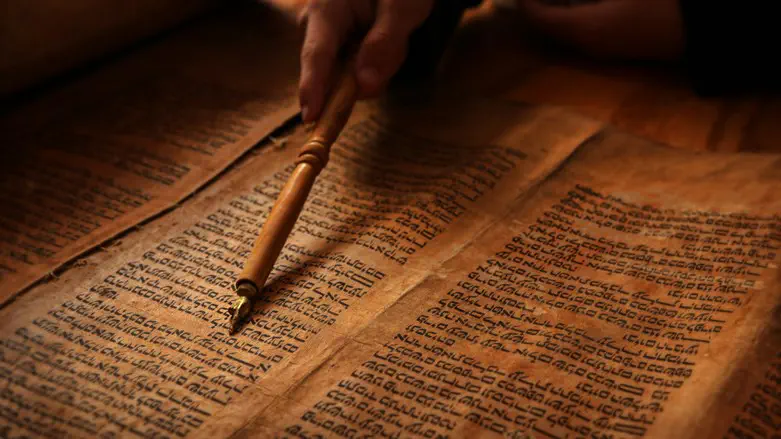
This week’s Parshah contains the sad saga of the Jews’ first major sin as a nation. Fresh off the Spiritual high of receiving the Torah, 39 days later, Am Yisrael sought a replacement for their missing leader, Moshe, and crafted the golden calf. Where once the nation had been above the Angel of Death, and an eternal future of Spiritual Bliss was readily apparent, an echo of humanity’s ancestor Adam, reverberated, and the Jews fell harshly back to a world of physicality–and eventually, exile.
The gravity of the sin was so potent, that G-d expresses to Moshe [Shemot 32’ 9’] the possibility of relaunching the Jewish people only from Moshe’s descendants. What follows thereafter is a passionate defense of Am Yisrael laid out by Moshe, culminating in Moshe’s insistence, that if the punishment of the Jews would consist of complete rejection, then Moshe’s name should be erased from the Torah [Shemot 32’ 32’].
The above is of the more well known components of the narrative. Mystically, the Talmud comments on the sin of the Golden Calf
“Rabbi Yehoshua ben Levi says: The Jewish people fashioned the Golden Calf (see Exodus, chapter 32) only to give a claim to penitents, as it is stated after the revelation at Sinai: “Who would give that they had such a heart as this always, to fear Me, and keep all My commandments, that it might be good for them, and with their children forever” (Deuteronomy 5:26). If the nation was truly at such a lofty spiritual state, how could they worship the Golden Calf? Rather, their sin occurred so that it would be made clear that one can repent for any sin, as even a sin as severe as the Golden Calf was forgiven.”
R’ Yehoshua Ben Levi’s interpretation of the story of the Golden Calf, while raising some difficult dilemmas, mainly in the arena of free choice versus G’ds omnipotence, does answer the most pressing issue that needs to be raised here–how can a Nation, fresh off receiving the Ten Commandments and witnessing an open revelation of G-d’s majesty, sink to idol worship in so quick a fashion? Therefore, R’ Yehoshua Ben Levi concludes, the entire incident was to serve as a guide to mankind that repentance is always within reach, and even a sin as grievous as the Golden Calf can be atoned for.
Additionally, along these mystical lines, the Talmud comments [Sotah 14A], that upon Moshe’s passing:
“The Holy One, Blessed be He, was saying: “Who will rise up for Me against the evildoers? Who will stand up for Me against the workers of iniquity?” (Psalms 94:16).”
Astoundingly, G-d’s eulogy for His most beloved prophet consisted of highlighting Moshe’s steady and constant defense of the Jewish people. Even when sinning in as debased a fashion as the creation of the Golden Calf, Moshe’s stalwart defense of the Jewish people was cherished by G-d.
On an even deeper level, when told by G-d that if he chose to be buried in the Holy Land, the Jews that he had taken out of Egypt would not merit resurrection due to their litany of sins, Moshe readily accepted his lot, and was buried in the wilderness of Pe’or, outside of Israel, to watch over his generation even in death [See Chizkuni, Devarim 3’ 26’]. The sacrifice of Moshe culminated with his willingness not only to forgo walking in the land of Israel while alive, but even to rest there in death. Moshe gave up his entire personal identity and desires–even those as holy and pure as the chance to merit even momentarily being Israel--to ensure the wellbeing of his flock.
Ultimately, the spirit of sacrifice for Am Yisrael that Moshe represented was baked into the national identity of the Nation of Israel, as we have seen time and time again during the difficult war currently being fought by our heroic soldiers–the stories of camaraderie, bravery, and sheer heroism do not cease to inspire. And while Moshe had to sacrifice his opportunity to reach the Land of Israel for the sake of Am Yisrael, our soldiers are ready to give up everything to ensure that Israel remains, until the coming of the Messiah, ours.
